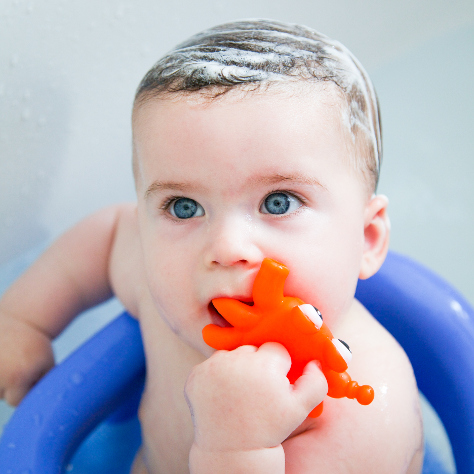Stubborn cradle cap
Cradle cap is common in newborns but can it can stick around, find out how to treat stubborn cradle cap

Cradle cap is a common condition in babies that affects their scalp.
Cradle cap can look as if your baby has a flaky scalp or has dandruff. It can appear red in the scalp, and look as if the area is covered with greasy, yellow, scaly patches.
As time goes on the scales become flaky and rub away. Some babies get only a minor case that goes away in the weeks and early months after they’re born, while other babies get a stubborn case that sticks around for a good while – even up until the age of three!
Why has my baby still got cradle cap?
The main cause of cradle cap is thought to be remaining hormones in your baby's body left from the pregnancy. The hormones stimulate secretions from oil glands in the skin, resulting in skin cells on the scalp sticking to it.
A family history of allergies particularly eczema can be another cause. If your baby has suffered with cradle cap there’s a possibility seborrhoeic dermatitis conditions could develop in later years.
How can I treat cradle cap?
Cradle cap usually runs its course and disappears in its own time once the scales have tried and start to flake away. To help you can wash your baby's hair regularly with mild, unperfumed baby shampoo and gently loosen flakes with a soft brush. You can try gently rubbing on baby oil or vegetable oil to help soften the crusts or use baby oil, vegetable oil or petroleum jelly overnight and wash with baby shampoo in the morning.
Can I pick my baby’s cradle cap?
It might be tempting, but try not to as it can leave sore red patches that could become infected. Cradle cap doesn’t cause hair loss but picking it could damage the delicate hair follicle. The damage occurs below the surface of the skin so it might not be visible but it’s not recommended.
Does my baby need to see the doctor about cradle cap?
If the cradle cap starts to look swollen and red or is spreading beyond the scalp it is worth visiting the doctor as there is a chance it could be infected. Your doctor might prescribe an antifungal shampoo or cream.